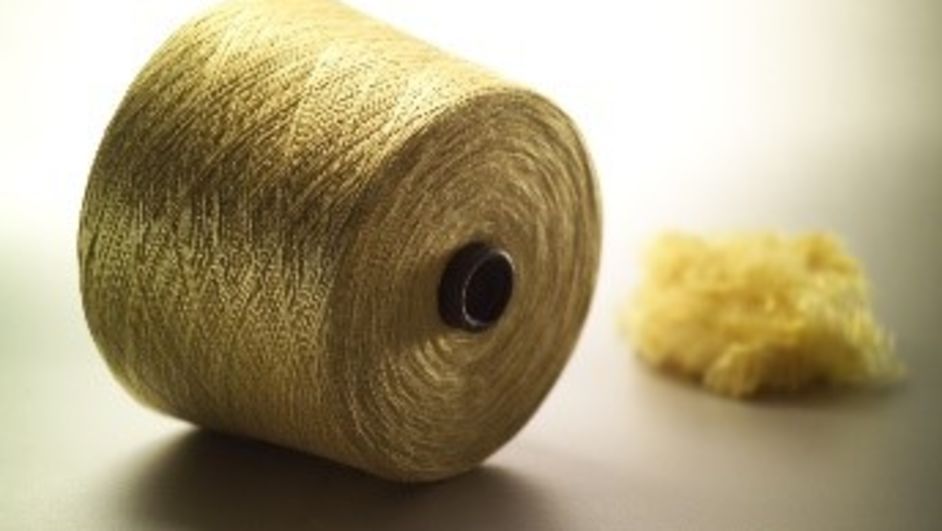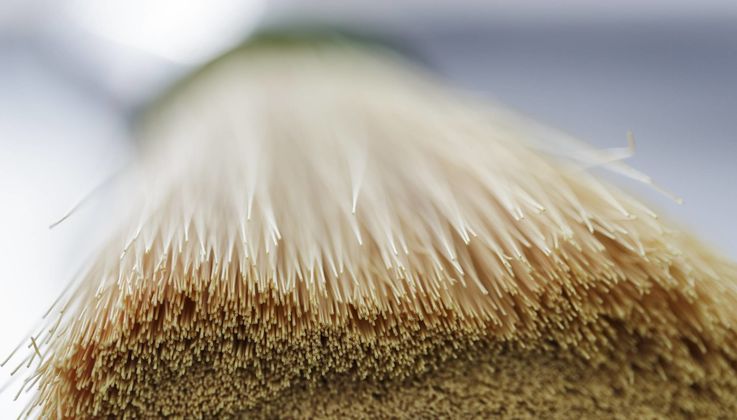
We provide clean air
The world’s population produces some 3.5 million metric tons of waste every day. While material recycling and thermal processing are becoming increasingly important for disposal, industrial filters help to minimize the resulting emissions. In other places, photocatalysts remove pollutants from the air.
What we do:
Waste incineration plants, which turn residual materials into energy, represent a cornerstone of waste disposal. To keep the operation clean and efficient, filter bags are used for flue gas cleaning - for example made from the high-temperature-resistant material P84® by Evonik. These polyimide fibers filter the exhaust gas with particular efficiency due to their multi-pronged design.
In waste incineration plants, a large fan artificially maintains a constant gas flow. Since the P84® fibers maintain a high level of permeability over their entire life cycle, they can significantly reduce the energy consumption of such fans.
Filter media made of P84® polyimide fibers by Evonik therefore not only reduce dust particulate emissions, but also cut down on energy costs by 25 percent. Over 160 waste incineration plants have already opted for P84® filter bags from Evonik for flue gas cleaning. Based on these energy savings alone, they reduce CO2 emissions by around 27,000 metric tons per year. Cement factories, power plants and other industrial facilities are discovering the filters as well.
While certain pollutants are never released thanks to the P84® filters, Evonik even goes a step further. The company manufactures AEROXIDE® TiO2 P 25, a fine-grained pure titanium dioxide, which can break down organic pollutants or nitrogen oxides under direct sunlight in ambient air. Titanium dioxide (TiO2), which is widely used as a white pigment, is a particularly efficient photocatalyst. The construction market already features a large selection of photocatalytically active products. These include, for example, concrete components, paving stones and pavements, as well as roof coverings, sun protection systems or coatings for solar modules. When titanium dioxide is stimulated in direct sunlight, it breaks down the nitrogen dioxide (NO2) adsorbed at its surface into nitrate, which can then simply be washed off by rain.
In addition, such surfaces frequently are also easier to clean. Because of the hydrophilic nature of titanium dioxide, water forms a closed film on them, which can easily take away dirt and degradation products. TiO2 particles incorporated into facade paints or tiles therefore create self-cleaning, dirt-repellent surfaces.




